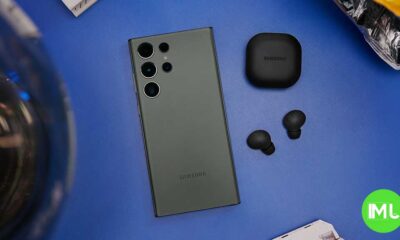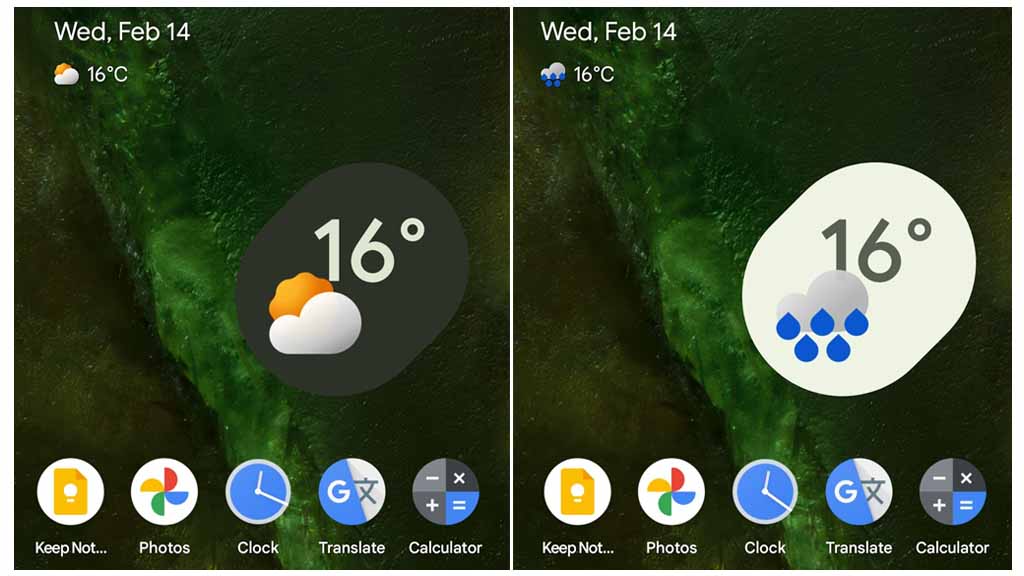New features for Gemini and Chrome enhance security and usability

Google continues to refine and enhance its Gemini and Chrome products, introducing features that simplify user experience while improving security, especially for Android users. Key updates include allowing Gemini to handle calls and messages on locked devices, security measures in Google Chrome to protect your data if your phone is stolen, and design simplifications to make user interaction smoother. Here’s a detailed breakdown of these changes.
Gemini’s New Lock Screen Features: Calls and Texts on Locked Devices
Google is reportedly expanding Gemini’s capabilities to handle phone calls and text messages even when the device is locked, a feature that was previously only available through Google Assistant. This new feature will be part of an upcoming update where users can enable an on/off toggle allowing Gemini to make calls and send texts without unlocking the device. However, to protect sensitive data, Gemini will still ask users to unlock the phone when personal information, such as email content, is involved.
This change is a significant step towards making Gemini more competitive with Google Assistant and aims to offer users added convenience without sacrificing security. The feature will likely enhance hands-free interaction for users, especially in scenarios where immediate response is needed.
User Interface Simplification for Gemini
Alongside functional upgrades, Google is also working on simplifying the user interface of Gemini. One of the notable UI changes is the floating overlay design, which is becoming more minimal. When users input text into the Gemini box, the overlay will expand vertically to display all the content without overwhelming the screen. This more compact design makes Gemini less intrusive while maintaining its functionality.
Another notable change is the shift in how users are prompted to interact with Gemini. The previous command “Type, take, or share a photo to Gemini Advanced” is being replaced with a simpler “Ask Gemini” prompt. This change is aimed at streamlining the experience, making the virtual assistant more accessible and user-friendly across devices.
Google Chrome’s Enhanced Theft Protection: Blocking Password Autofills
Protecting sensitive information on stolen devices has always been a critical issue, and Google is addressing this through a new feature called Identity Check. This feature will require biometric authentication, such as fingerprints or facial recognition, before allowing access to sensitive apps like Google Chrome, which often store passwords and payment details.
The Identity Check feature is designed to prevent thieves from accessing sensitive information even if they know the phone’s screen lock PIN or pattern. Currently, many apps, including Chrome, allow users to enter their phone’s screen lock PIN to authenticate. This makes devices vulnerable if the thief has already seen or figured out the screen lock code. Identity Check aims to close this security loophole.
In practice, this feature will ensure that accessing critical settings, like changing a PIN or accessing Google accounts, will require biometric verification. This enhancement will be part of Android 15 QPR1, expected to roll out in December 2024. Until then, the feature will remain in development, but its importance in preventing data breaches on stolen devices is clear.
Chrome’s Biometric-Only Authentication: Expanding to Password Autofills
In addition to device settings, Google Chrome is preparing to extend biometric authentication to password autofills and other secure actions within the browser. A new method, “GetBiometricAvailabilityStatus,” will determine if biometric authentication is mandatory, available, or unavailable, ensuring that Chrome adapts to the security level of each device. This feature is designed to protect users from having their stored passwords or sensitive information compromised in case of theft.
This security update will be part of Chrome’s integration with Android 15 and will enhance the app’s ability to safeguard sensitive information like payment methods and personal settings. Once enabled, users will need to authenticate via biometrics before accessing these features, providing an extra layer of protection.
Gemini and Google Chat Interface Upgrades: Simplified Navigation and Interaction
Beyond security, Google is also focusing on improving user experience across its platforms. The floating bottom bar in Google Chat, a design element introduced about a year ago, is getting a visual refresh. Previously, the bar used a circle indicator for navigation, but it’s now being updated to a pill-shaped tab, which is more in line with Google’s Material You design language. This change makes the bar more streamlined and easier to use, aligning with Google’s broader design goals for consistency across platforms.
Additionally, the container background is now themed with Dynamic Color, making it stand out more than the older light or dark theme versions. These visual tweaks aim to simplify navigation and improve the overall user experience, while also ensuring that the design fits in seamlessly with other Material 3 interfaces.
Google is also rolling out an enhancement to the Gemini app, where users can interact using the simplified “Ask Gemini” command. This change, alongside the recent redesigns, shows Google’s continued effort to make Gemini more intuitive and user-friendly, without losing the power of its advanced features.
Google Workspace AI and Gemini Integration: Improved Summaries in Google Chat
In another significant development, Google Workspace is introducing a new summarization feature for Gemini, enabling users to quickly catch up on unread conversations. On mobile devices, users can long-press on a thread to generate a summary, while desktop users get a “Summarize” button on hover. This feature will be especially useful for busy professionals looking to quickly assess the content of group conversations and threads.
This new feature is rolling out to Google Workspace customers with paid add-ons, such as Gemini Business, Enterprise, and Education. By offering these AI-driven tools, Google aims to boost productivity and efficiency across its platforms.
Conclusion: A Focus on Security and User Experience
Google’s latest updates for Gemini and Google Chrome focus on improving both security and user experience. From allowing Gemini to handle calls and messages on locked devices to enhancing Chrome’s security features with biometric authentication, these changes are designed to protect users while offering greater convenience. The UI updates and design improvements further simplify interaction, making it easier for users to navigate and use these powerful tools. As these updates roll out with Android 15 and other system changes, Google continues to lead in delivering advanced, user-friendly technology.
Android
Google’s May 2025 Android updates: better performance and messaging

Google’s May 2025 Android updates bring exciting changes to improve how your phone works and how you message. These updates focus on making devices faster, safer, and more user-friendly.
One big change is to Android’s memory system. By increasing the memory page size from 4KB to 16KB on newer devices, apps can load quicker and use less power. This helps phones, especially those with modern chips, run smoothly and save battery life. Older devices will stick with the smaller page size to avoid issues.
The Google System Updates for May also add new features. Google Wallet now supports more card types and makes transit passes easier to use in apps like Google Maps. The Play Store now shows video previews of apps, helping you decide what to download. There are also fixes to improve battery life, storage, and network performance, making your phone more reliable.
For Google Messages, a new “delete for everyone” feature lets you remove sent messages from group chats within 15 minutes. This works for both RCS and SMS, so you can fix mistakes easily. Other messaging upgrades include better scam detection and the ability to send high-quality photos and videos. These updates show Google’s effort to make Android devices faster, more secure, and better for communication. Keep your phone updated to enjoy these improvements!
Smart home and navigation upgrades for easier living

Google Maps is making driving more fun with a new feature for Android Auto and Apple CarPlay. Now, you can pick different car icons to show your vehicle on the map. Choose from options like a sleek sedan, a rugged SUV, or a cool arrow.
This small change adds a personal touch to your navigation and is rolling out to all users soon. Meanwhile, Ecobee’s Smart Doorbell Camera is getting a big upgrade with Google Home support. You can now see who’s at your door right from the Google Home app, view live video, and even talk to visitors.
If you have a Nest Hub, the doorbell feed pops up automatically when someone rings. This feature, already available for Ecobee’s thermostat, makes your smart home setup smoother and is available now for all users. On the AI front, Google’s Gemini app is getting smarter with the Gemini 2.5 Pro preview.
This update improves coding skills, helping developers create better apps and websites. It also handles video and text tasks more effectively. The preview is out for everyone to try, with Google planning to share more at its I/O 2025 event. These updates from Google and Ecobee bring small but meaningful improvements, making your car rides, home security, and digital tasks easier and more enjoyable.
Google updates Chrome, Search, and Play Store for better user experience

Google is rolling out exciting updates to make browsing, searching, and downloading apps smoother and safer for Android users. These changes focus on improving Chrome’s security, redesigning the Google Search bar, and enhancing the Google Play Store’s download process.
Chrome’s Improved Security
Google Chrome now offers stronger protection with “Enhanced Safe Browsing” powered by Gemini Nano, an AI model that works directly on your device. This feature checks websites in real-time to spot phishing attempts and other online threats, keeping your data safe without relying on cloud servers. It’s a step up from the standard protection, giving users more peace of mind while browsing.
Redesigned Google Search Bar
The Google Search bar on Android is getting a fresh look. It’s now simpler and easier to use, with a modern design that fits better with your phone’s home screen. The updated widget lets you access Search, Lens, or voice commands quickly. The new layout is clean and user-friendly, making searches faster and more intuitive.
Better Play Store Downloads
The Google Play Store is improving how it shows app download progress. A new notification design displays a progress bar right in your notification panel, so you can track downloads without opening the app. This small but helpful change makes managing app installs more convenient.
These updates show Google’s focus on creating a safer, simpler, and more efficient experience for Android users. They’re rolling out gradually, so keep an eye out for them on your device!
-

 Apps1 year ago
Apps1 year agoGboard Proofread feature will support selected text
-

 News1 year ago
News1 year agoSamsung USA crafting One UI 6.1.1
-

 News1 year ago
News1 year agoBreaking: Samsung Galaxy S22 may get Galaxy AI features
-

 News1 year ago
News1 year agoSamsung Galaxy S23 Ultra with One UI 6.1 and all S24 AI features revealed
-

 News1 year ago
News1 year agoOne UI 6.1 Auracast (Bluetooth LE Audio) feature coming to many Samsung phones
-

 News1 year ago
News1 year agoSatellite SOS feature coming to Google Pixel phones, evidence leaked
-

 Apps12 months ago
Apps12 months agoGoogle’s fancy new Weather app is finally available for more Android phones
-

 Apps10 months ago
Apps10 months agoGoogle Contacts app testing new Besties Widget




